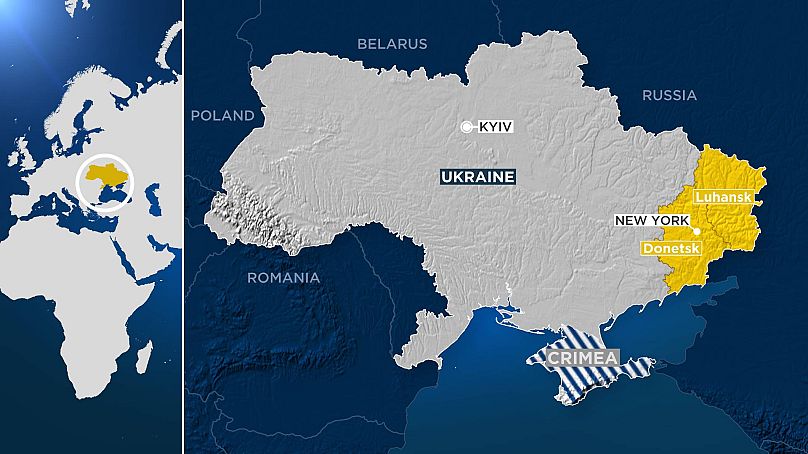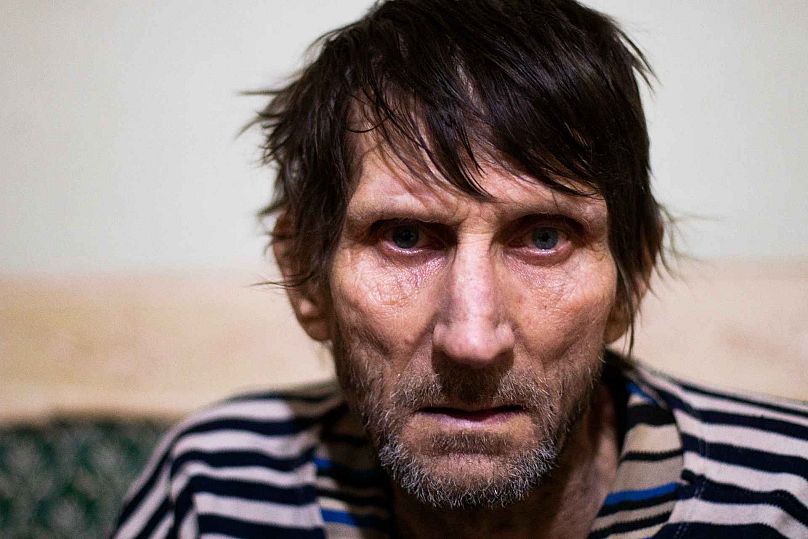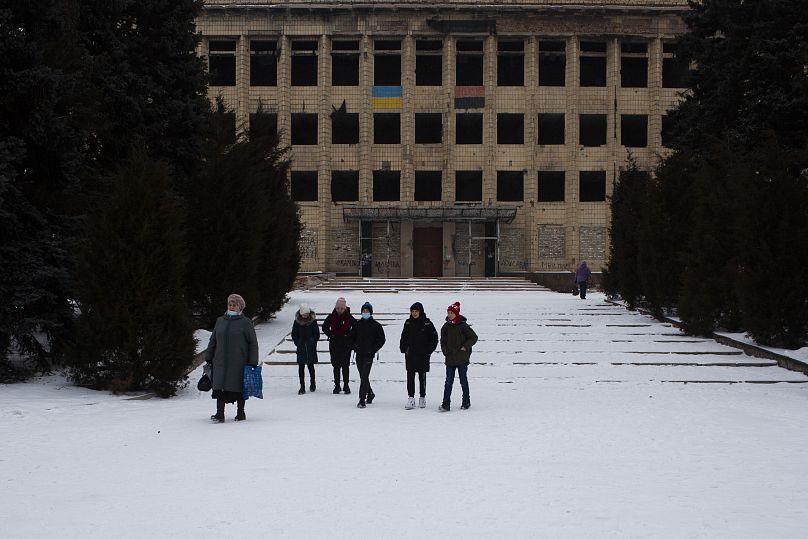Just 40km from Donetsk, Ukrainians on the front line face shell-damaged houses and a shattered economy.
Aleksei Shevchenko, 59, was not at home on the night last July when a 122mm mortar shell smashed through his roof and buried his bed in bricks and masonry.
 ADVERTISEMENT
ADVERTISEMENT
 ADVERTISEMENT
ADVERTISEMENT
Shevchenko had been across the street at his sister’s house taking a nap. Thanks to that decision, he is alive today.
He still hasn’t got around to fixing his roof.
Shevchenko and his neighbours in the Ukrainian town of New York -- previously known as Novhorodske and just under 40km from Donetsk in the war-torn east of the country -- watch the television and have heard that the United States and its allies warn that a Russian invasion is imminent, something Moscow has repeatedly denied.
They have heard reports that 100,000 Russian troops are near the Ukrainian border as talks between Washington and Moscow over NATO expansion fail to produce a breakthrough.
But Shevchenko is sceptical about the level of the threat.
“I think that this is only a provocation," he said. "I really do think that a full invasion of Ukraine is impossible. It is not going to happen.
“Of course, I cannot know what will happen, but I think that a new war would be too costly for Russia.”
The war in eastern Ukraine broke out in 2014. Russia annexed Crimea before pro-Russian separatists declared independence in Donetsk and Luhansk. The conflict -- between the separatists and the Ukrainian army -- has killed more than 14,000 people, according to the UN. There were agreements aimed at implementing a ceasefire but there have been repeated violations.
For many people near the frontline, the war has also resulted in poverty as investments diminished, factories closed and the Ukrainian currency hryvnia weakened against the dollar.
“There is not really anything here to take. If a new war happens, everything will be destroyed. Who would want that?” says Shevchenko.
If the Russians do come, however, Shevchenko will destroy what’s left of his house rather than let the Kremlin have it.
Nina, 85, remembers the night that the shell hit Shevchenko's house. She was sitting on a bench in the middle of the street and was showered with broken glass.
She has no children, is unmarried, and lives in a small house with her sister. If war comes, she has no plans to leave. She has little here in New York, where her pension is barely enough to make ends meet, but it is hers.
“This is my home. They can come here and kill me, that is not important,” Nina told Euronews.
“What will be will be. I am old. I don’t have much to live for anymore. I am 85. The only place that I will go from here is to the cemetery.”
'Peace is all I want'
Nina hopes that the talk of a new war can be swapped with talk of peace.
“Peace is all that I want. It would be so good,” she said.
Not everyone is convinced. In a survey by Kyiv International Institute of Sociology, KIIS, 48.1 per cent of the 1,205 Ukrainian respondents believe the threat of a Russian invasion is real, while 39.1 per cent find it unlikely.
But on the streets of New York, it is hard to find anyone who believes that an invasion is imminent.
“I don’t think that Putin will attack,” said Andrei Mykolayvych, 53.
Mykolayvych believes that Russia would meet too much resistance in Ukraine and that the Ukrainian army is in much better shape now than it was in 2014. But if a conflict does come, Mykolayvych plans to play a role.
“If it happens, it will be a different war than in 2014: a modern war,” he said.
“I will do what I can to stop Russia.”
Elsewhere in New York, Taras, 47, and Svetlana, 48, who run a hardware store, are getting ready. They have been stockpiling food in their basement, enough for several weeks.
“Putin has a Napoleon complex, so I think that war is possible. If it happens, we will hide in a basement,” Taras said.
“We are ready. We have to be ready.”
Every weekday, Uncovering Europe brings you a European story that goes beyond the headlines. Download the Euronews app to get a daily alert for this and other breaking news notifications. It's available on Apple and Android devices.













